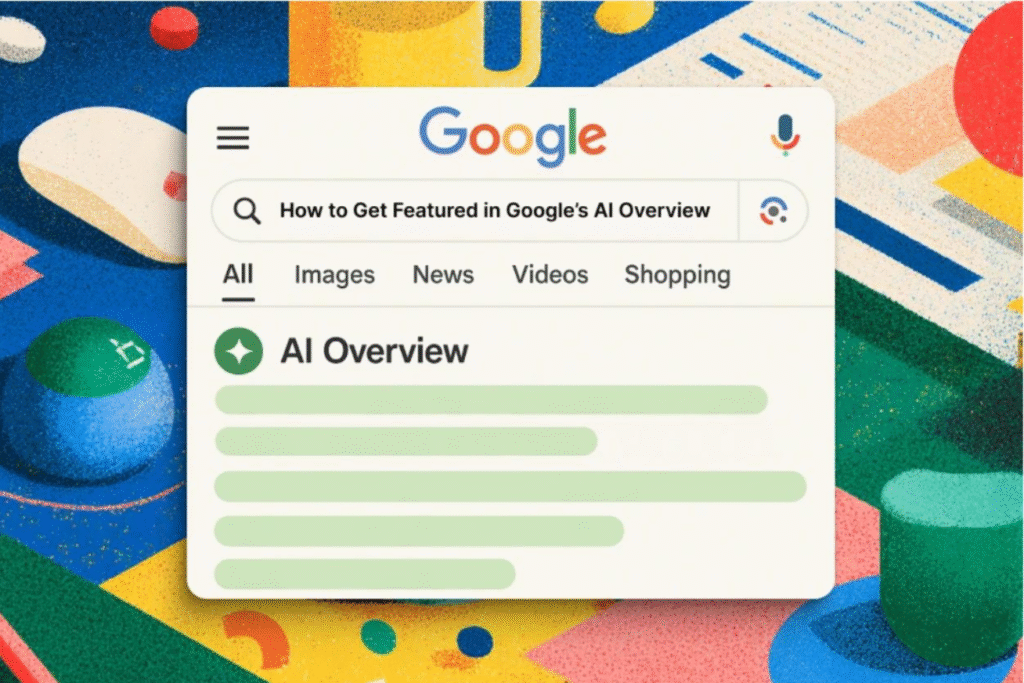
The Internet After AI Overview
The internet was closely associated with two promises for its users and for the future it would bring: the free flow of information, and the ability to facilitate communication and social connection across the world. Though far from unrealized, the current landscape of digital world complicates this. Misinformation, division, and extremism are just as synonymous with the internet today, perhaps more so than the cyberutopians of the late 90s.
The story of the internet is far more complex than this, of course, but I think this dual desire for information and communication is a useful framework for thinking about how the primary channels that organize our navigation of the web might fundamentally transform our relationship to the internet. This transformation will be shaped not in the pursuit of connection or the sharing of information, but in the enclosure of the web, filtered, chopped, and summarized through automatically generated text.
It has been just over a year since Google AI Overview was introduced to the search engine, a feature that utilizes Gemini, a large language model that generates short answers to search queries, scraping content across the web nearly instantaneously to generate a summarized answer. More recently, Google has expanded this feature with its new “AI Mode” offering the latest Gemini 3.0 model update to help answer users’ “toughest questions” via a ChatGPT-esque user interface, albeit with the same disclaimer that warns that AI responses may include mistakes. These range from comical, viral cases such as Google AI Overview’s suggestion to use glue on pizza, and persistent cases of medical misinformation.
AI summaries are the result of complex, algorithmic and probabilistic associations of words and data. In the former example, the model presumes likelihood between pizza ingredients and glue where in fact, that association is incorrect, unsupported, and unrelated. Since these models rely primarily on probabilistic associations, more obscure and context-specific associations may creep into these generated summaries as well, leading to the perpetuation of misinformation. Though these instances are often called “AI hallucinations” , scholars are moving have argued that these instances are more accurately described as instances of “fact fabrication” or stochastic parroting.
However, even if we were to assume the unlikely possibility that generative AI’s fact fabrication were to be solved completely, the rollout of AI Overviews has already raised other significant issues that jeopardize the current infrastructure of how information online is generated and distributed. Many users are solely relying on Google summaries despite their limitations, directing traffic away from news sites, blogs, and other sources of information. Pew Research has recently published a report, finding that when users are provided AI summaries, they are less likely to click links to other websites and are more likely to end their browsing session. This has already had devasting effects on news media outlets, with some reports reporting a 79% loss in its traffic when delivered below an AI overview. As publishers have begun to share more of their click-through drops, crucial for the financial viability of online publication in its current state, it leaves serious questions about what the future of online publicising looks like if AI summaries make users less inclined to pursue full-length reports by the journalists, researchers, or bloggers who produce the information that AI Summaries are regurgitating.
Google has publicly rejected the validity of these reports, claiming that they have not observed dramatic drops in aggregate web traffic and emphasize that as people gravitate towards AI features, that they will enable new opportunities for website discovery. After all, Google’s search engine is an advertising space. It is essential for their business model that they can continue to sell ad space in search queries, even as they place greater emphasis on generative AI summaries. This commercial drive hints at the possible futures of an AI-filtered web, and that future is premium advertising space:

Google has currently made advertising in AI Overviews available in the US, and will expand in other English speaking countries soon. The idea is that summaries will continue to be the first point of user interaction in a search, making it the most valuable space for advertisers not only because a growing number of users that solely rely upon that summary, but also because the AI Overview can directly suggest products and businesses as the “clear next step”, “meeting customers in these previously inaccessible moments of high relevance.” The seemingly neutral and efficient veneer of the AI Overview is perfectly postured to provide unknowing users recommendations that were shaped by advertisers. It may seem easy to dismiss these concerns as Google’s search results are getting less and less useful because of its pre-existing advertising structure. My concern is that the AI Overview and the expanded AI Mode are more pernicious because they group together and exploit those two vital utilities that the Internet was predicated on: connection and information.
Google wants AI Overview and AI Modes to be the primary means you search for information, obscuring and superseding the people who work to research and verify the facts AI Overviews scrape, and reducing what I believe is a valuable, longstanding relationship authors have to their readers. Moreover, we know that the conversational tone of these AI agents offered by Google’s AI Mode lead people to entrusting them with a greater degree of agency and autonomy in spite of the very real risks and consequences associated with doing so.
We do not know the full consequences of web chiefly curated by a generative AI system, and there is a real possibility that some of the problems mentioned here will turn more users away from relying on AI Overviews. However, I do believe that this shift towards generative AI as the chief interface for information gathering fundamentally threatens a further enclosure of the internet, driving us away from the sources of information and the people that work to generate that knowledge.
*Title image credit: BOWWE Builder, 2025
